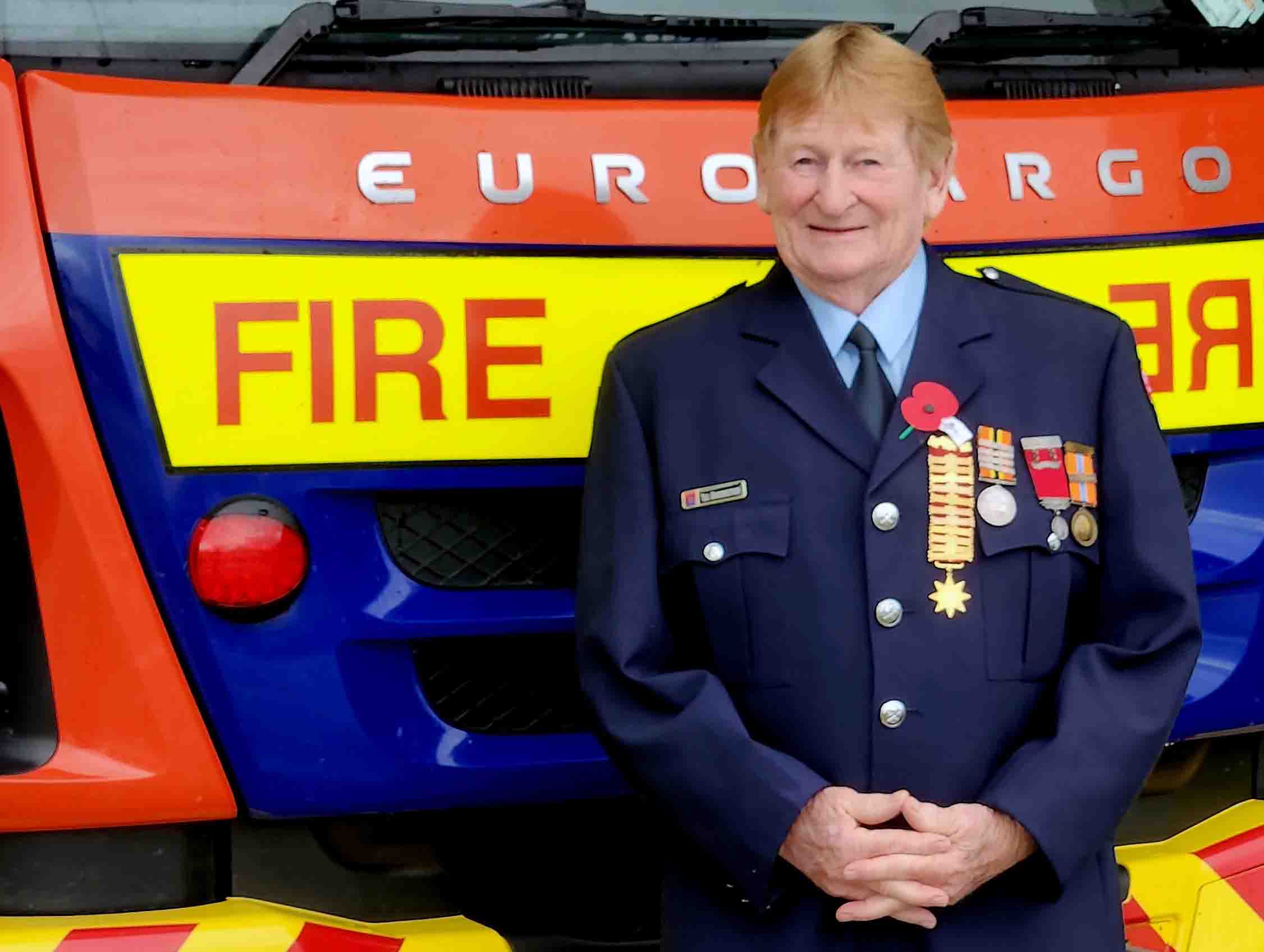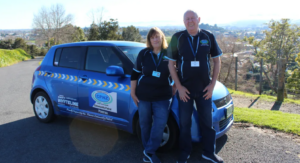In his 50 years of service with the Ngatea Fire Brigade, Edward Engebretsen, known as Ted, has seen a lot of changes.
The 79-year-old man joined the brigade as a volunteer in 1973. Already involved in a number of community organisations, he still wanted another way to contribute.
“I did want to join an organisation that enabled me to make an unselfish contribution to the community,” he said.
“[I knew] full well that it was going to be a further commitment to my time … it was a simple case of priorities.”
When Ted signed up, the service was operating on the smell of an oily rag. The council of the time allowed them a meagre budget, but additional expenses required constant fundraising.

“On the Kōpū Bridge we would stop the traffic and collect a toll, for many years,” Ted said.
“[And] we were running around in red bands.”
In time, the service expanded their building from the small garage where they initially operated. The amalgamation of fire services across the country was a further boon, as suddenly the volunteers found they had plenty of specialist equipment for their work.
“We’ve got all new appliances in there, we’ve got all the latest gear,” Ted said.
“The improvement of training instruction, equipment … has kept up with the demand for better results in emergencies.”
The emergencies have also evolved; where callouts were once mostly basic structural fires, the brigade now finds itself attending more car accidents and medical callouts, Ted said.
“Though we still put the cold stuff on the hot stuff.”
One thing that has remained a constant, however, is the seriousness with which the team takes their work.
“We’ve always been very strict on people coming along to training. That hasn’t changed right from day dot. Even though our training might not have been as good right from the early days,” Ted said.
“Now the training is real professional, we’re sent away for [week-long] courses. Originally we would have had a training officer come from a local fire brigade and he would just do a one-day demonstration with us. It’s really become quite professional.”
And through it all, the volunteers have been the heart of the service.
The social side of the force has always been a part of it, Ted said, and he was hopeful young people would continue to join up to find camaraderie and help their community.
“The most important thing that makes it all work is the word volunteer,” Ted said.
“[And] I would like to thank all those brigade members past and present … for your friendship and company.”
Throughout the decades, Ted has worked his way through the service from a volunteer right up to deputy chief fire officer, a role which he held for 16 years.
Although he retired from the deputy position in 2008, he is still a regular fixture around the station in his current role as janitor and storeman, and he has also taken on the committee role of secretary.
“Because of health and other commitments, I decided to resign from the [deputy] position and remain in the brigade as a non-operational support person,” he said.
“I must admit that after a long period with the brigade I often question my worth being here when I’m not fit and able to a degree … but what else will I do on a Wednesday night, you know? So I come down to training.”





